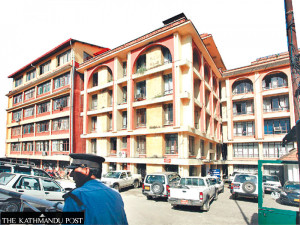Money
DFTQC to upgrade laboratory
DFTQC is upgrading its laboratory to carry out residue monitoring test as per the European Union (EU) standards.
After upgrading the laboratory, the department plans to get accreditation from India’s National Board for Testing and Calibration Laboratories (NABL), said DFTQC Director General Jiwan Prava Lama.
The department plans to carry out tests and certify quality of major agro-based products like tea, lentils, honey, ginger, large cardamom and noodles from the upgraded lab. Currently, the department only tests whether the products contain any substandard materials.
After the upgradation, exporters will have to pass Residue Monitoring Plan (RMP) to receive DFTQC certification. RMP is a standard set by the EU that tests whether farm products contain any pesticide, antibiotics and heavy metals like nickel and zinc. “It is a total package of assuring quality that will also include inspection from the stage of production to sample collection and storage,” Lama said.
DFTQC has been continuously making efforts to receive approval for RMP for NTIS. Last year too, the department had forwarded the RMP of Nepali honey to the European Commission seeking its approval.
Lama said most of the countries accept products that tested under the EU standard. “RMP addresses requirements set by most of importing countries,” Lama said, adding they have started upgrading the capacity of the existing accredited laboratory. “After upgrading the lab, it will be equipped to test various elements as per the RMP.”
DFTQC received accreditation from NABL in 2012, allowing it to test and certify 25 parameters of food items, including protein, micro-level fatty acid, dietary fibres, vitamins and mineral contains.
The government, through the NTIS, has planned to boost exports of farm products, but a failure to meet quality
standards maintained by importing countries has it the performance of most of these products.
The Trade and Export Promotion Centre’s statistics show exports of lentils and ginger plunged heavily in the first eight months of the fiscal year, while exports of tea and honey surged marginally. Exports of large cardamom and noodles increased 42.9 percent and 34.8 percent, respectively.
“As soon as we complete the lab upgradation, we will apply to NABL for revising the accreditation,” Lama said.




 19.71°C Kathmandu
19.71°C Kathmandu














